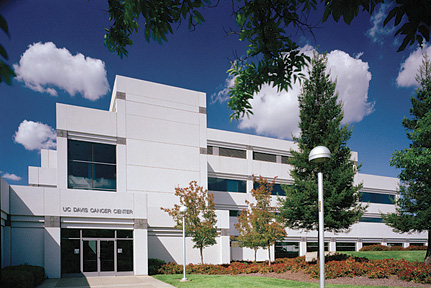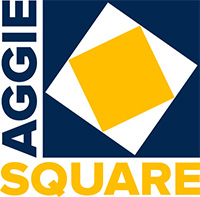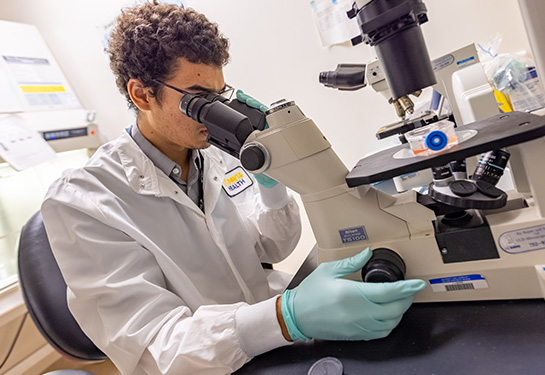UC Davis medical school ranked among the nation’s best for NIH research funding
The UC Davis School of Medicine is among the nation’s leading medical schools in National Institutes of Health (NIH) funding, according to the latest Blue Ridge Institute for Medical Research ranking. The medical school broke its record of NIH funding with a total of more than $209 million, placing it 33rd nationally.
“Research is foundational to our mission of delivering tomorrow’s health care today,” said Susan Murin, interim dean of the UC Davis School of Medicine.
“We’re proud to be in the top quartile of all medical schools in the country for NIH funding, furthering us in this mission. This achievement is the result of our faculty’s trailblazing work and the leadership of Vice Dean for Research Kim Barrett, Vice Dean for Basic Sciences Luis Fernando Santana, our department chairs and center directors. With our continued investments in research infrastructure, we are confident that we are on a trajectory to reach new record-breaking heights,” Murin added.
UC Davis School of Medicine departments in the Top 20
This year, nine School of Medicine departments ranked in the top 20 nationally in their respective fields, with an unprecedented four in the top 10. They included:
- Cell Biology and Human Anatomy #15
- Emergency Medicine #16
- Medical Microbiology and Immunology #17
- Neurology #6
- Physical Medicine and Rehabilitation #20
- Physiology and Membrane Biology #10
- Psychiatry and Behavioral Sciences #17
- Public Health Sciences #6
- Urologic Surgery #10
The top three departments in terms of overall NIH funding were Neurology ($34.5 million), Internal Medicine ($26.2 million) and Public Health Sciences ($24.4 million).

Top NIH-funded principal investigators and centers
This fiscal year, 266 principal investigators (PIs) were awarded 410 NIH grants.
Rachel Whitmer, a professor in the Departments of Public Health Sciences and Neurology and co-director of the Alzheimer’s Disease Research Center, is the PI with the most NIH funding at UC Davis. She also tops the rankings for NIH-funded investigators in Public Health Sciences nationwide. Whitmer was awarded a total of $13.5 million for three research projects: age-related dementia, cognitive impairment and brain pathology among people over 90, the KHANDLE Study on ethnic disparities in dementia, and the study of healthy aging in African Americans.
Charles DeCarli is the PI on a $9.5 million grant that funds his study on white matter lesions found on brain scans of people with memory concerns. DeCarli is the co-director of the Alzheimer’s Disease Research Center and a distinguished professor at the Department of Neurology.
Diana Miglioretti was awarded $2.9 million to work on better breast cancer screening and surveillance practices. She is a professor and division chief of biostatistics in the Department of Public Health Sciences.
Alexander Borowsky, a professor and director of molecular diagnostics in the Department of Pathology and Laboratory Medicine, was awarded $2.9 million for his research on California partnerships for personalized nutrition.
The NIH also funded world-class centers and programs at UC Davis, including:

- The Clinical and Translational Science Center, PI: Ted Wun
- The UC Davis Comprehensive Cancer Center, PI: Primo Lara
- The Conte Center, PI: Kimberley McAllister
- The UC Davis Mouse Biology Program, PI: KC Kent Lloyd
- The Nonhuman Primate Testing Center for Evaluation of Somatic Cell Genome Editing Tools, PI: Alice Tarantal
- The UC Davis Alzheimer’s Disease Research Center, PI: Charles DeCarli
- The UC Davis Environmental Health Sciences Core Center, PI: Irva Hertz-Picciotto
“Thanks to their NIH funding, our investigators and centers are able to pursue medical innovation and health discoveries that create a brighter future for our local and global communities,” said Kim E. Barrett, vice dean for research and distinguished professor of physiology and membrane biology. “We are very proud of our researchers who work to address some of the most challenging medical and health issues. We are also excited that Aggie Square will soon accelerate this exciting research and allow for greater collaborations across disciplines.”

Aggie Square is an innovation district that is expected to double the school’s research space and provide additional resources to its research community. It will feature state-of-the-art research facilities, modern office and mixed-use spaces, and world-class amenities.
Learn about the School of Medicine’s exciting research projects and the ongoing clinical trials.




